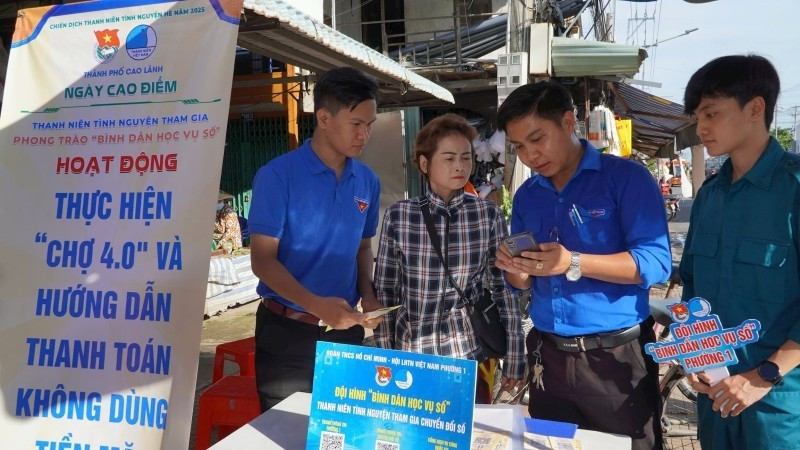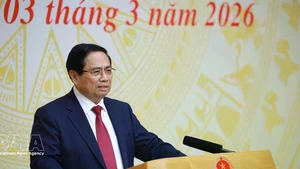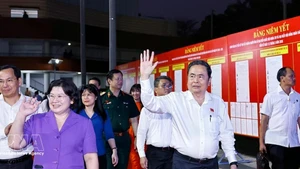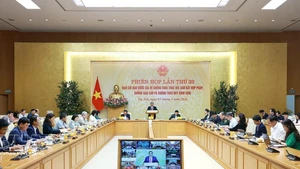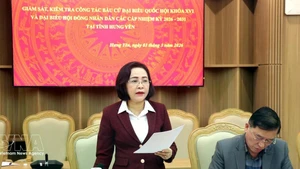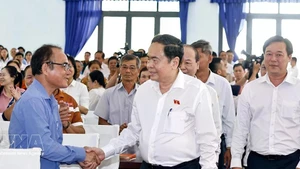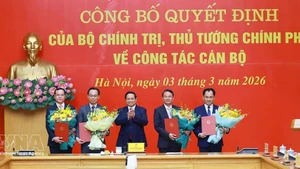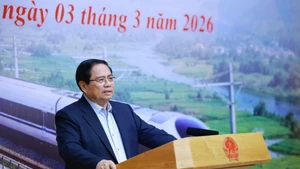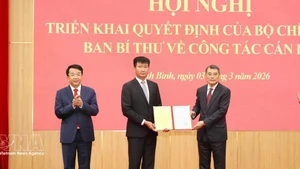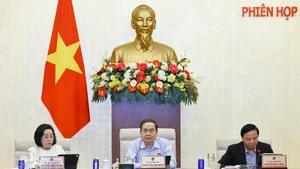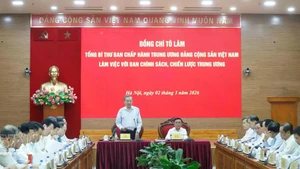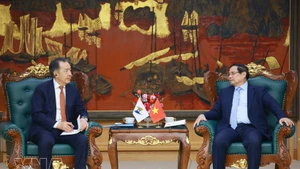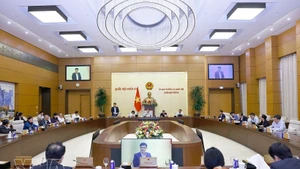From "4.0 markets" to "livable villages"
On the first day of the "Digital Literacy Movement" campaign, the youth of Dong Thap spread out across markets and shops to assist and guide vendors on how to make cashless payments and how to prevent and block harmful information online.
Early in the morning, at My Ngai Market, Ward 1, Cao Lanh City, the Digital Literacy Movement team from the Ward Youth Union was already there to support vendors in implementing the "4.0 Market" model. My Ngai Market has nearly 170 vendors, of whom 65% have bank accounts and are already using cashless payment methods. These vendors were assisted by youth union members in learning how to make payments and transfer money via cashless payment applications. Additionally, the youth union also helped people integrate some utilities into the VNeID digital identification application.
After taking a walk around My Ngai Market, it can be realised that most people had started adopting digital transformation. Many vendors selling vegetables and meat had bank accounts and were using cashless payments. Phan Truong An, Deputy Secretary of the Ward Youth Union in Cao Lanh City, said: "The Youth Union will expand the Digital Literacy Movement campaign to every neighborhood to support citizens and spread awareness about the benefits of cashless payments. We will also organize digital transformation training classes for those who need them."
Phuong Thinh (Cao Lanh District), a rural area where many people are not familiar with using smartphones, especially for transferring money, saw 124 members of the Phuong Thinh Youth Union actively visit each household and market area to assist people with online payments and using social media. "Many elderly people, after being guided, can now call their children through the internet and visit official news websites to read the news," said Le Tuan Anh, Deputy Secretary of the Phuong Thinh Youth Union.
Huynh Thi Nguyet, a resident of Hamlet 1, Phuong Thinh, who makes handicrafts, shared, "Thanks to the youth union members' guidance, I now use Zalo to stay in touch with my family and access useful health information and official news."
Ready for the digital age
Dong Thap has always been a shining example in administrative reform, education, and innovation. However, alongside its remarkable achievements, the province still faces challenges in spreading digital literacy to its people, especially in rural areas, among the elderly, vulnerable groups, and manual laborers. Many people still do not know how to search for information, use digital banking apps, shop online, pay online, or even send an email, access Zalo or Facebook securely, and search for information on the internet in a safe and effective way. Some students, young workers, and young laborers also lack the necessary skills and knowledge to work in a digital environment. If no timely action is taken, the digital divide will create a new social gap.
Huynh Minh Thuc, Secretary of Dong Thap Provincial Youth Union, said: "In the digital age, the Digital Literacy Movement is not only a slogan but also a critical mission. The campaign helps people grasp technology, access digital knowledge, and become digital citizens in a digital society. By implementing the concepts of Digital Literacy Movement, the youth of Dong Thap have made thorough preparations with over 3,500 volunteer youth union members taking on roles to guide the public in using public services, cashless payment apps, digital identification, and basic AI skills."
The Digital Literacy Movement is a key task of the 2025 Summer Volunteer Youth Campaign. 141 teams at commune level and 14 teams at district level have been deployed to carry out digital transformation activities locally.
Dong Thap Provincial Youth Union has identified key tasks to deepen and sustain the Digital Literacy Movement, including spreading digital skills and AI knowledge to 100% of communes and wards through suitable classes for each target group; enhancing creative communication through modern formats like infographics, videos, and social media to raise community awareness; developing digital skills for youth, aiming for 80% to be trained in basic digital skills and 50% to understand AI and IoT applications; linking digital transformation with local economic development, such as bringing agricultural products to e-commerce platforms; and building models for "digital rural areas" and "livable villages" in rural areas to create bright spots in community digital transformation.
Le Quoc Phong, Party Central Committee member, Secretary of the Dong Thap Provincial Party Committee, and Head of the Provincial Science, Technology, Innovation, and Digital Transformation Development Steering Committee, requested that all levels of government, mass organizations, and social organizations work together to support and create the best conditions for the public to access and learn about technology. Local authorities need to treat this as an important political task, on which the education and science-technology sectors must cooperate closely to implement effectively. The Fatherland Front and socio-political organizations will play a leading role, with each youth union member being the key to spreading digital knowledge.
The "Digital Literacy Movement" in Dong Thap helps people learn to use smartphones, apply technology, interact in the digital environment, access information, use online public services, and communicate on social media safely and effectively. This campaign continues the Vietnamese tradition of lifelong learning and makes a tangible contribution to the country's development in the digital age.
